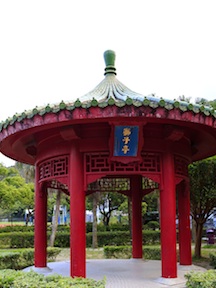By Samantha Yates
Students who are looking to pursue an undergraduate degree have a great deal to consider when choosing a university. Size of an institution, tuition and other costs, living accommodations, and location are just a few logistical concerns for college applicants, and that is before one even gets into the academic programs of study that are offered.
All prospective students additionally must debate between a highly technical tracked education, in which students take classes that train them for more specific work, and a liberal arts program of study, where students have a declared field of study but are required and encouraged to take classes that are not within their field to broaden their understanding of other topics.
Many countries in Asia are home to universities that primarily follow the technical learning model. However, a growing number of collegiate institutions in Asia are switching to a more liberal arts style of learning. Po Chung, a successful entrepreneur in Hong Kong, is a part of a group of advocates that support changing the eight universities in the city of Hong Kong into more comprehensive liberal arts programs. The group believes that this different focus will allow students to develop their creativity and innovation, rather than just learning technical skills.
Many Asian students appear to share that sentiment—about 30% of international students in the United States (the country home to the largest number of liberal arts colleges) are Chinese. That figure does not even consider the international students from other Asian countries where similar education systems exist.
Ironically, just as these Asian students and graduates are looking to implement more of the liberal arts in education, colleges in the United States seem to be moving away from the practice. Americans often cite China and Japan as models of education that should be implemented in the United States. So why do Po Chung and his counterparts think that the liberal arts would be such a good idea?
Advocates of the liberal arts method of education argue that the diversification of knowledge allows students to develop the skills necessary to look at a problem from a variety of angles. It makes students more marketable, because they have a wider variety of skills to utilize in the workplace. But, more importantly, this kind of study is incredibly beneficial for a student’s personal growth.
One Chinese international student, Chen Yongfang, is now writing a book about his liberal arts experience, why it was beneficial, and how other international students can pursue the same kind of education. “Liberal arts is about fostering your identity,” he says. “They want to cultivate your mind. You may not remember all the knowledge you’ve learned after four years, but they want you to know how to learn.”
It seems that Po Chung and his counterparts lobbying for more liberal arts options in Hong Kong and all over the Asian continent recognize the importance in Yongfang’s statement—that schooling based on standardized testing and technical skills does not instill this rich experience and understanding in the students who participate in those programs.
The growing interest in liberal arts programs in Asian countries is not going to alter all universities on the continent overnight. It may be decades before there is even a large presence of liberal arts colleges. What is important, however, is that the style of education is being recognized for its merits and emphasis on student development. It reflects a shift in the focus of universities from being solely concerned with finding students jobs to focusing on their wellness as human beings—a far more crucial and invaluable piece of education—which is better for students as well as society overall.
Photo: The Lions Pavilion at the Chinese University of Hong Kong in Hong Kong on May 3, 2015. It is built at the middle of the Lake Ad Excellentiam.
Samantha Yates is a junior at McDaniel College majoring in English and minoring in economics. McDaniel College is home to the Delta of Maryland Chapter of Phi Beta Kappa.




